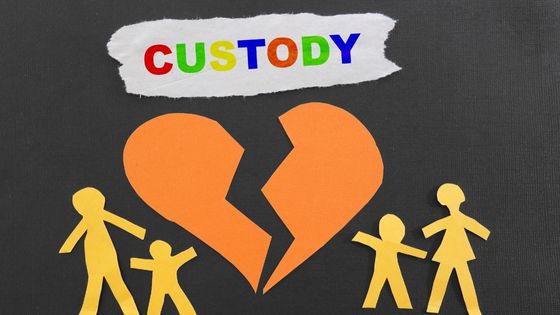Divorce can be a complex and emotionally stressful process. You need to sort out many difficult things, such as the division of assets, spousal support, and so on. If you have children, you also need to sort out child custody.
According to Florida child custody laws, children benefit from having frequent contact with both parents. The court considers the best interests of the children before deciding time allocation between the parents. Florida custody law also does not differentiate between parents before deciding on child custody matters. The circumstances and facts of the case determine the custody arrangements.


This guide helps you understand some important things you should know about child custody in Florida.
How to get custody of a child in Florida?
When it comes to granting custody of a child, courts in Florida focus on the child’s best interest. Unless one parent is considered unfit, the court will generally grant joint custody to preserve the relationship of the child with both parents. If you want to gain sole custody of the child, you would need to prove to the court why it is in the child’s best interest. As per Florida divorce law, you must file a parenting plan with the Florida family law court for a divorce involving minor children.
Parenting plan
In Florida, Family Law requires each parent to submit a proposed parenting plan that outlines parental responsibilities and time-sharing. It also outlines the decision-making authority for the child and also states how the parents will share the responsibilities in the upbringing of the child. You need to clearly state who is responsible for school-related matters, health issues, extracurricular activities, and so on. In case you and your spouse have reached a settlement agreement on custody, you do not need to submit separate parenting plans. You can submit a single plan for approval.
For a parenting plan to be approved by the court, you will need to provide these details, at a minimum:
- Who will take care of what when it comes to daily responsibilities for a child
- The time-sharing schedule
- The designated address of the child for school and other such activities
- How the parents will communicate with each other regarding the child
- Which parent will be responsible for school-related matters and healthcare concerns
According to Florida family law rules, courts place a very strong emphasis on encouraging a positive relationship between the child and each parent. A judge will evaluate the willingness and ability of each parent to adhere to the time-sharing schedule, and make adjustments without requiring the court’s intervention. They will also consider the ability of each parent to communicate and keep the other parent informed of the wellbeing and other activities of the child.
Time-sharing
Time-sharing between parents may vary depending on the specific facts of the case. The court determines a schedule that is in the child’s or children’s best interests. Some common time-sharing schedules are:
Weekly
Each parent has the children for a week. The parents need to pick a day of the week to exchange the children. If both of you have similar work schedules, this could be an easy schedule to follow. Such a time-sharing schedule is usually more effective if you have older children.
Two weeks at a time
If your children are teenagers, weekly exchanges may be a little problematic. For such children, the two weeks at a time approach gives them more time at each home. If you are a busy parent, you could schedule your heavier work during the time when the child is at the other parent’s.
2-3-2 schedule
This is a weekly schedule that alternates between each parent. So, in one week, say the first parent has the child for 2 days, then the next parent gets the child for 3 days. The child is then back to the first parent for another 2 days. The next week the second parent gets the child for the first two days, the first parent gets it for the next 3 days, and then back to the other parent for 2 days.
As we said earlier, there is no fixed schedule that parents need to follow. The court determines the best time-sharing schedule keeping in mind the best interests of the child.
What does the child’s best interest mean?
The court uses the child’s best interests as a guideline when determining child custody in Florida. It is to ensure that the child is able to grow and develop into a stable adult. Judges expect the parents to put the child’s needs ahead of their own. Using this guideline, the courts consider many factors that could impact the development of a child. These factors may include:
- The extent to which a parent has demonstrated the ability to meet the developmental needs of the child
- The willingness of each parent to foster a relationship between the other parent and the child
- The mental and physical health of each parent
- The moral fitness of each parent. Moral fitness takes into consideration behaviors such as substance abuse, verbal abuse or illegal behavior that could affect the moral and ethical development of a child.
- The ability of the child to adjust to the new home and community
- The ability of each parent to provide a consistent routine to the child
- The preference of the child, if the child is of a reasonable age
- The ability of each parent to be able to provide a stable and safe environment for the child
- The amount of travel time it would take for each parent to honor the time-sharing schedule mentioned in the parenting plan.
What makes an unfit parent?
If the court determines that a parent is unfit, they may even lose their custody rights. A parent is considered unfit if:
- They have a past history of substance abuse
- They have a mental condition that makes them unable to fully care for the child
- Any past incidents of abuse or neglect of the child
- A history of family violence or restraining orders
- The inability of the parent to provide a stable environment for the child
Summary
Hiring an attorney is not really mandatory in Florida child custody cases. Your children are the most important in your life and a custody battle can be extremely stressful for you as well as your children. That’s why you need the best child custody lawyer in Florida. Your attorney can help you navigate the process, fill in the Florida family law forms, and advocate on your behalf. If litigation is required, partnering with a child custody law firm can make the process simpler and smoother for you.
















